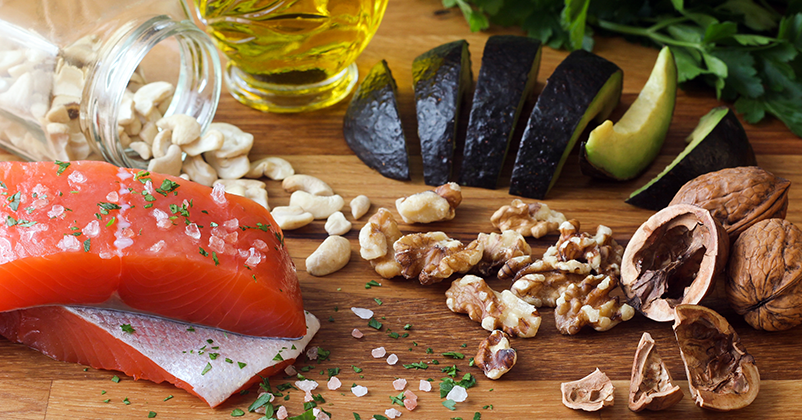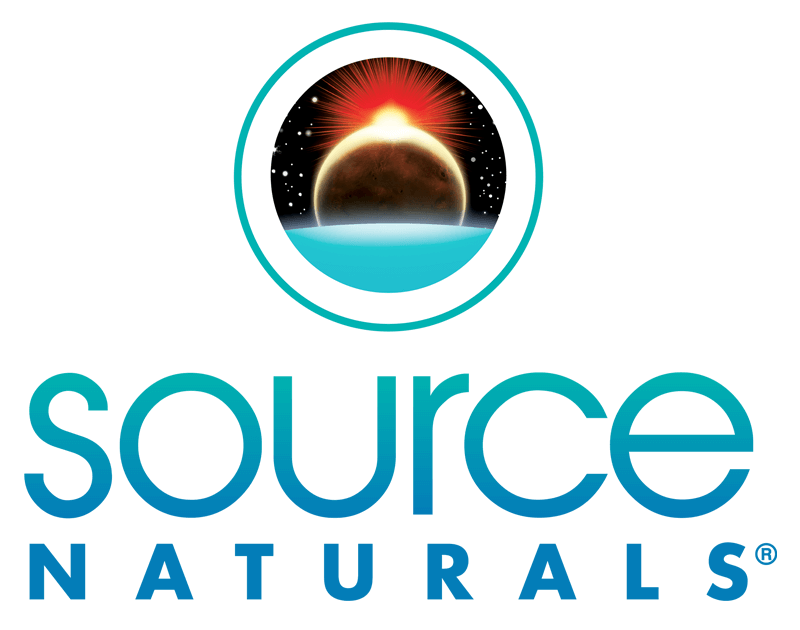
You may try to avoid too much fat in your food to keep from packing on extra pounds…but as far as your cellular processes are concerned, getting enough healthy fats is vitally important to your health.
What’s Essential About Fatty Acids?
Fatty acids are the building blocks of fat. They have many important functions in your body, including energy storage; for example, if glucose (sugar) isn’t available, fatty acids can power your cells instead.
Some of the most important fatty acids are omega-6s and omega-3s. These fatty acids are part of every cell in your body, and they play key roles in keeping your heart, brain, and other body systems healthy. They’re called “essential” because, although your body needs them consistently, it can’t produce them—so you need to get these fatty acids in your diet (from food or supplements) every day.
Our bodies need a balance of omega-6s and omega-3s. You probably get more than enough omega-6s in your diet already; they’re abundant in most vegetable oils, corn, poultry, eggs, and other common foods. Most of us, however, don’t get the omega-3s we need.
What Omega-3s Do for You
The omega-3 fatty acids DHA and EPA are integral to cell membranes. That barrier surrounds and protects every cell in your body, allowing nutrients to enter and waste products and toxins to pass out, and facilitating communication between cells. Omega-3s support:
- Brain cell function. DHA is a primary part of nerve cell membranes, which influence the proper activity of neurotransmitters; in prenatal nutrition, it’s essential for the development of fetal and infant brain and visual systems.
- Heart health. EPA is a precursor to the chemical mediators that help regulate healthy physiological processes in the cardiovascular system. Both DHA and EPA support healthy levels of LDL production by the liver to help maintain blood cholesterol levels already in the healthy range.
- Healthy immune system function.
- Joint health.
- Healthy inflammatory response.*
How to Get the Omega-3s You Need Every Day
Three forms of omega-3 fatty acids are important to know about in your daily diet: ALA, DHA, and EPA. ALA is the omega-3 fatty acid found in plants; DHA and EPA are found in marine algae, fatty fish, and fish and krill oil.
DHA and EPA are the omega-3s most closely connected to heart health. Your body can convert ALA to DHA and EPA, but the conversion process is slow and inefficient, and it varies between individuals—it can be very difficult for you to get enough omega-3s this way. It’s easier to get your omega-3s directly from foods with readily available DHA and EPA.
There are plenty of ways to add omega-3-rich foods to your diet:
- Eat fish. Fish oil has both EPA and DHA readily available for your body to use. Experts’ current recommendation is 2 servings a week of oil-rich fish, such as anchovies, sardines, herring, salmon, lake trout, or tuna. Check Seafood Watch’s regional guides for the healthiest and most sustainable fish choices available in your area.
- Add nuts. Walnuts are great snacks and recipe superstars. Toss them into salads, stir-fries, and baked goods, or make walnut pesto.
- Dress with vinaigrette. Reach for olive, toasted walnut, or any plant oil to make lively, delicious salad dressings with a vinegar of your choice.
- Swap out butter. Substitute neutral-tasting canola oil for butter in quick breads, muffins, and some cakes.
- Go grass-fed. If you eat meat, choose grass-fed or pasture-raised animals, whose meat will be lower in total fat and higher in omega-3s than that of traditionally grain-fed animals.
Omega-3 Supplements Are a Good Option
If you don’t eat foods rich in omega-3s, supplements are a good option—but to realize the best benefits for your body, ensuring a quality source is key. Fish oil is an excellent source of DHA and EPA, but many fish oils on the market today are sourced from poor-quality fish, raising concerns about mercury, PCBs, and other contaminants. In addition, low-quality products may be exposed to heat and sunlight, which can turn the oil rancid, stripping it of valuable antioxidants and even making it potentially harmful.
Source Naturals® ArcticPure® fish oils undergo a molecular distillation process to purify them before they’re tested for PCBs and heavy metals. Oils that meet our purity standards are encapsulated and bottled in a state-of-the-art, oxygen-free manufacturing environment. After being tested for oxidation, they’re sealed in a distinctive black bottle to protect them from light. The result is the finest, purest, most potent oils available.
If you don’t eat animal products at all, you know it’s hard to find both DHA and EPA from vegan sources. Source Naturals® Vegan True® Non-Fish Omega-3s provide both from sustainable phytoplankton, the microscopic plants at the base of many aquatic food chains. Several studies have shown that algal oil is as easily metabolized as fish oil, and the patented blend in our Vegan True Non-Fish Omega-3s provides both DHA and EPA in an oil that’s pure, vegan, and nourishing—with no fishy aftertaste.
“Must-Have” Wellness Nutrients
Omega-3s are “must-have” nutrients for any effective wellness program. They’re a critical part of your body’s well-being at the cellular level, supporting healthy heart, brain, and cellular function, to name a few. Reach for healthy omega-rich foods—or high-quality supplements—to ensure you get the omega-3s you need every day.
*Note: Not all inflammation is associated with disease states. Inflammation is also the body's healthy immune response to life's normal stressors such as strenuous exercise or an occasional high-fat/high-calorie meal. The body's inflammation response to life's occasional, normal stressors is important for optimal health. These statements have not been evaluated by the Food and Drug Administration. This product is not intended to diagnose, treat, cure, or prevent any disease.
Discover Source Naturals Essential Fatty Acids products here.
References
To dig deeper into omega-3 fatty acids and their essential benefits for a healthy body, try these links.
Peter Jaret, “Understanding the Omega Fatty Acids,” WebMD, Mar. 2, 2011. Accessed Nov 23, 2016.
WebMD, “Shopping for Omega-3s: Top Sources at Your Store,” Jul. 20, 2015. Accessed Dec. 7, 2016.
WebMD, “The Facts on Omega-3 Fatty Acids,” Mar. 27, 2015. Accessed Nov. 2, 2016.









